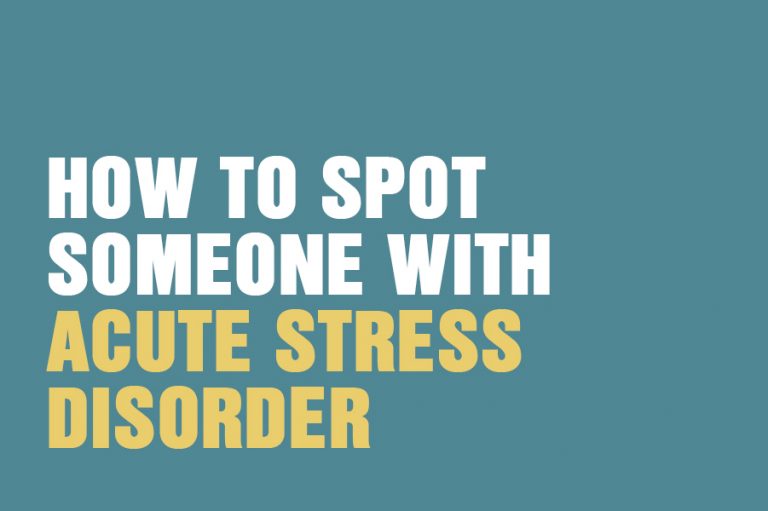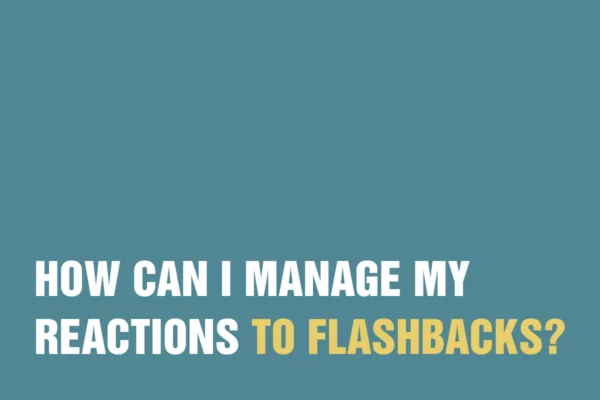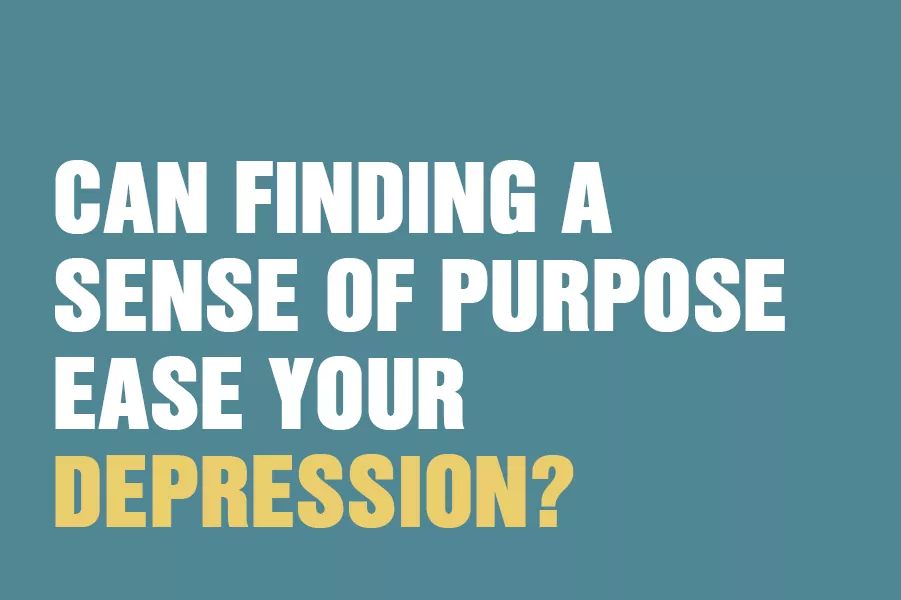Are you concerned that someone close to you isn’t coping well with a recent traumatic event they’ve experienced? We don’t just mean they’ve been under pressure at work and they’re struggling to cope. If the event they’ve been exposed to is severe and life-threatening – such as a mugging, a rape, an accident, experiencing a terrorist attack or natural disaster, or discovering the violent death of a loved one – they may go on to develop symptoms that seriously inhibit their ability to cope with what’s happened to them. If they’re unable to get over it, and are constantly reminded of what happened, then they may be suffering from acute stress disorder.
The DSM-5, the manual that psychiatrists use to diagnose psychological conditions, says that acute stress disorder can happen when someone is exposed to “actual or threatened death, serious injury, or sexual violation” on one or more of these ways:
- Directly experiencing the traumatic event.
- Witnessing the event happening to others.
- Finding out that the traumatic event happened to a close family or friend (where the actual or threatened death was violent or accidental).
- Repeated exposure to details of the traumatic event (such as people working in emergency services).
Symptoms of acute distress disorder
To be diagnosed with acute distress disorder, the person needs to show nine out of 14 of the following symptoms – which are categorised into intrusion, negative mood, dissociation, avoidance, and arousal.
Intrusion symptoms:
- Distressing memories of the traumatic event that keep happening and interfere with everyday life.
- Recurrent distressing dreams where the content of the dream, or its emotional effect, is related to the event.
- Dissociative reactions (for example, flashbacks) where the person feels and acts as though the traumatic event was happening again. They may even lose awareness of their surroundings.
- Triggers that remind them of the event (internal or external) can bring on extreme psychological distress or strong physiological reactions.
Negative mood symptoms:
- Persistent inability to experience positive emotions, such as happiness, satisfaction or love.
Dissociative symptoms:
- An altered sense of the reality of their surroundings, including seeing themselves from another’s perspective, or being in a daze.
- Inability to remember an important aspect of the traumatic events. This may be because they dissociated when the event was happening, as a way of protecting themselves from the horror of it.
Avoidance symptoms:
- They make efforts to avoid distressing memories, thoughts or feelings related to the traumatic event.
- They make efforts to avoid reminders (people, places, conversations, activities, objects, situations) that arouse distressing memories, thoughts, or feelings related to the traumatic event.
Arousal symptoms:
- Difficulty falling or staying asleep, or having restless sleep.
- Irritable behaviour and angry outbursts (with little or no provocation), typically expressed as verbal or physical aggression toward people or objects.
- Hypervigilance – where they’re constantly on high alert and on the lookout for danger.
- Problems concentrating.
- Exaggerated startle response – jumping and feeling distressed at a slight noise, for example.
For someone to be diagnosed with acute stress disorder, the symptoms need to occur after the traumatic event, lasting for between three days and a month. The symptoms need to be causing significant distress in social or work situations, or other important areas of functioning. It is said that if the trauma was caused by an assault then the person is more likely to develop acute stress disorder.
How to support someone with acute stress disorder
- You may want to encourage the person to visit their GP, who may prescribe medication or a course of trauma-related therapy/CBT to help them take back control of their thoughts and behaviours.
- Don’t take their moods or outbursts personally. They’re a symptom of the traumatic experience they’ve been through.
- Suggest that the person keeps track of their moods and feelings, to help spot and manage the triggers for their distress.
- Feelings of safety are paramount, as an antidote to the acute stress, so encourage the person to prioritise self-care.
If you or the person close to you would like support from a therapist who works with the after effects of traumatic events, get in touch with our team and we’ll match you with the right person at our Clapham or Tooting centres. Call 020 8673 4545 or email [email protected].







